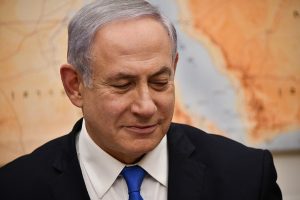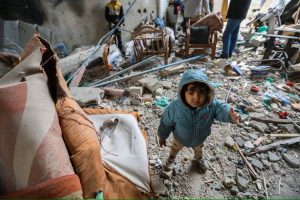The shameful treatment of foreign children in U.S. custody
The government bars me from arguing on behalf of my client, a Pakistani boy seized when he was 14
By John J. Connolly
1:26 p.m. EST, December 20, 2012
The State Department revealed this month that the United States has detained more than 200 children at its military prison in Afghanistan. I represent one of them, a boy who left his parents’ home in Karachi, Pakistan in July 2008, when he was 14, on a trip to his grandparents’ house in western Pakistan. He was allegedly captured in Afghanistan a few weeks later and has been "detained" at Bagram Air Force Base ever since. What frustrates me about the State Department report is not the number of children detained, but that the U.S. won’t let me or other lawyers make a case that these children should be released. According to the U.S., the children can make that case themselves — perhaps with the assistance of a military "personal representative" — but not with the help of a parent, guardian, friend or lawyer.
The detention of children during armed conflict is not new. It has occurred for many reasons, sometimes to protect the child from society and other times to protect society from the child. Since the end of World War II, however, a consensus has emerged that children caught up in armed conflict are usually victims. Over the last 60 years, civilized societies have adopted an array of principles, laws and treaties to protect children from war.
The shameful treatment of foreign children in U.S. custody
The government bars me from arguing on behalf of my client, a Pakistani boy seized when he was 14
By John J. Connolly
1:26 p.m. EST, December 20, 2012
The State Department revealed this month that the United States has detained more than 200 children at its military prison in Afghanistan. I represent one of them, a boy who left his parents’ home in Karachi, Pakistan in July 2008, when he was 14, on a trip to his grandparents’ house in western Pakistan. He was allegedly captured in Afghanistan a few weeks later and has been "detained" at Bagram Air Force Base ever since. What frustrates me about the State Department report is not the number of children detained, but that the U.S. won’t let me or other lawyers make a case that these children should be released. According to the U.S., the children can make that case themselves — perhaps with the assistance of a military "personal representative" — but not with the help of a parent, guardian, friend or lawyer.
The detention of children during armed conflict is not new. It has occurred for many reasons, sometimes to protect the child from society and other times to protect society from the child. Since the end of World War II, however, a consensus has emerged that children caught up in armed conflict are usually victims. Over the last 60 years, civilized societies have adopted an array of principles, laws and treaties to protect children from war.
The United States is sometimes a leader of this movement and sometimes a perplexing resister. It has ratified and implemented the Optional Protocol on the Involvement of Children in Armed Conflict, which prevents recruitment and use of child soldiers, and it is often a strong voice in enforcing the Protocol. But unlike nearly 100 other countries (including Afghanistan, China and Sudan) the U.S. has not endorsed the Paris Commitments, which urge prompt release of all children recruited or used illegally in armed conflict. State Department officials no doubt can reconcile these positions, but the message heard by much of the world is that detention of children involved in armed conflict is wrong — when other nations do it.
One way to change that message is to ensure that children detained by the U.S. military have a fair opportunity to prove that they should be released. A number of lawyers have argued that federal courts should provide that opportunity through their power to issue writs of habeas corpus. The privilege of the writ of habeas corpus is enshrined in our Constitution and dates back much further. The Supreme Court has recognized that habeas rights extend to foreigners detained as combatants at Guantanamo Bay, Cuba. Thus far, however, courts have not extended habeas rights to detainees, child or adult, held in Afghanistan.
Instead, according to the State Department’s recent report, detainees are given "periodic administrative hearings" before military officers at the prison in Afghanistan. A military personal representative is assigned to help, but the detainee "may elect to represent" himself. If you’ve raised a 14-year old or been one yourself, you probably wouldn’t be satisfied with either option. Children are ill-suited to represent themselves, if not legally incompetent to do so. In most legal proceedings, particularly those considering deprivation of a child’s liberty, children participate through a parent or guardian, or a lawyer, or both. Military representatives cannot perform either role; they are not trained as guardians and they lack the incentive, professional obligation and perspective of a retained lawyer. And leaving a 14-year old child to present his own case — from a prison cell in a foreign land — is a perversion of any modern system of justice.
Why would the outcome be different if the detainee could present his case to a neutral tribunal through private counsel? It might not be. But if a fair tribunal concludes that a particular child should be detained, the outcome would be morally defensible, both here and abroad. On the other hand, a lawyer may convince the tribunal that the child is not culpable, and thus not detainable, at least in part because he is a child — a possibility that the United States military appears to foreclose. If our nation claims authority to detain "child soldiers" as young as 14 or 12 or 10, often for many years, it has a moral obligation to defend that position before a neutral judge in a fair proceeding.
Some humanitarians believe civilizations can be measured in part by how they treat their children. A more telling measure may be how they treat other civilizations’ children taken into custody. Surely a nation as powerful as the United States can do better than asking these children to be their own lawyers.
John J. Connolly is a partner in a downtown Baltimore law firm. His email is jconnolly@zuckerman.com.





